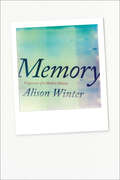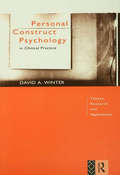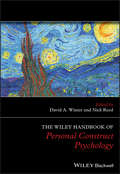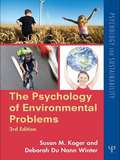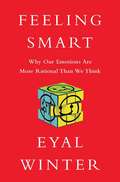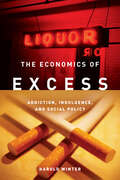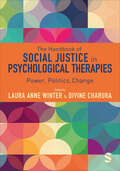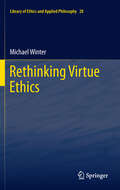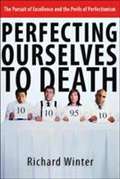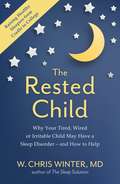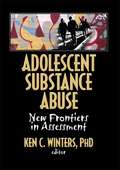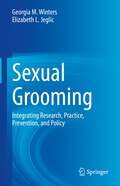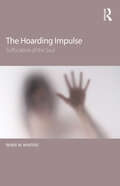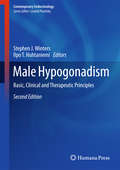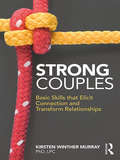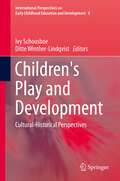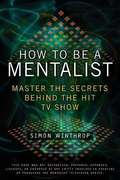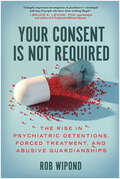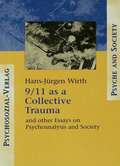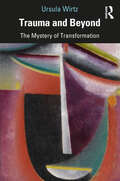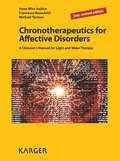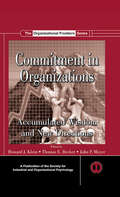- Table View
- List View
Memory: Fragments of a Modern History
by Alison WinterPicture your twenty-first birthday. Did you have a party? If so, do you remember who was there? Now step back: how clear are those memories? Should we trust them to be accurate, or is there a chance that you're remembering incorrectly? And where have the many details you can no longer recall gone? Are they hidden somewhere in your brain, or are they gone forever? Such questions have fascinated scientists for hundreds of years, and, as Alison Winter shows in Memory: Fragments of a Modern History, the answers have changed dramatically in just the past century. Tracing the cultural and scientific history of our understanding of memory, Winter explores early metaphors that likened memory to a filing cabinet; later, she shows, that cabinet was replaced by the image of a reel of film, ever available for playback. That model, too, was eventually superseded, replaced by the current understanding of memory as the result of an extremely complicated, brain-wide web of cells and systems that together assemble our pasts. Winter introduces us to innovative scientists and sensationalistic seekers, and, drawing on evidence ranging from scientific papers to diaries to movies, explores the way that new understandings from the laboratory have seeped out into psychiatrists' offices, courtrooms, and the culture at large. Along the way, she investigates the sensational battles over the validity of repressed memories that raged through the 1980s and shows us how changes in technology--such as the emergence of recording devices and computers--have again and again altered the way we conceptualize, and even try to study, the ways we remember. Packed with fascinating details and curious episodes from the convoluted history of memory science, Memory is a book you'll remember long after you close its cover.
Personal Construct Psychology in Clinical Practice: Theory, Research and Applications
by David WinterFirst published in 1994. Routledge is an imprint of Taylor & Francis, an informa company.
The Wiley Handbook of Personal Construct Psychology
by David A. Winter Nick ReedThe Wiley Handbook of Personal Construct Psychology is the definitive new reference for the field, providing a state-of-the-art review of PCP which focuses on the theory and its philosophy, methodology, areas of application and future horizons A definitive new reference work for the field of personal construct psychology, featuring leading international figures in the field Each section begins with a concise chapter that reviews the literature in the area concerned and highlights new developments Covers theory, history, methodology and a wealth of new and established applications including education, grief and meaning reconstruction, sexuality, organizational consultancy and personal construct coaching Draws on published and previously unpublished work by pioneers including Fay Fransella and Miller Mair
The Psychology of Environmental Problems
by Deborah Dunann Winter Susan M. KogerThis compelling and insightful textbook demonstrates how eight major approaches in psychology - social, psychoanalytical, behavioral, cognitive, physiological, health, developmental, and holistic - can be applied to create a more sustainable society. After outlining current environmental difficulties and historical antecedents, these various perspectives offer guidance for changing individual and collective behavior. This 3rd edition is thoroughly revised and updated throughout, and features new chapters on the neuropsychology of toxic exposures, health and the psychology of environmental stress, and developmental psychology. It offers a comprehensive review of literature in various subdisciplines, demonstrating the wide applicability and relevance of psychology for addressing imminent environmental threats. Like both previous editions, the book's tone is widely accessible and engaging -- and no previous background in psychology or environmental science is assumed or required. The use of personal examples and cartoons help engage the reader. The 3rd edition is also accompanied by online resources for instructors. The Psychology of Environmental Problems: Psychology for Sustainability, 3rd Edition can be used as a primary or secondary textbook on a wide range of courses in Ecological Psychology, Environmental Science, Sustainability Sciences, Environmental Education, and Social Marketing. It also provides a valuable resource for professional audience of policymakers, legislators, and those working on sustainable communities.
Feeling Smart: Why Our Emotions Are More Rational Than We Think
by Eyal WinterDistinguished authors like Daniel Kahneman, Dan Ariely, and Nassim Nicholas Taleb have written much about the flaws in the human brain when it comes time to make a decision. Our intuitions and passions frequently fail us, leading to outcomes we don't want. In this book, Eyal Winter, Professor of Economics and Director of the Center for the Study of Rationality at the Hebrew University of Jerusalem, wonders: why? If our emotions are so destructive and unreliable, why has evolution left us with them? The answer is that, even though they may not behave in a purely logical manner, our emotions frequently lead us to better, safer, more optimal outcomes. In fact, as Winter discovers, there is often logic in emotion, and emotion in logic. For instance, many mutually beneficial commitments--such as marriage, or being a member of a team--are only possible when underscored by emotion rather than deliberate thought. The difference between pleasurable music and bad noise is mathematically precise; yet it is also the result of evolution. And our inherent overconfidence--the mathematically impossible fact that most people see themselves as above average--affords us advantages in competing for things we benefit from, like food and money and romance. Other subjects illuminated in the book include the rationality of seemingly illogical feelings like trust, anger, shame, ego, and generosity. Already a bestseller in Israel, Feeling Smart brings together game theory, evolution, and behavioral science to produce a surprising and very persuasive defense of how we think, even when we don't.
The Economics of Excess: Addiction, Indulgence, and Social Policy
by Harold WinterThe Economics of Excess discusses both standard and behavioral economics as they apply to addiction, indulgence, and social policy. Chapter One provides a thorough discussion of economic models of addiction. The model developed in most detail takes into account both standard and behavioral approaches. The next three chapters examine specific indulgences: smoking, drinking, and overeating. The heart of this book is its comprehensive discussion of what is often referred to as the "new paternalism. " Many economists are now challenging the more traditional belief that, unless they are harming others, people should be left to their own indulgences. As more and more economists are arguing for policies that are designed to protect people from themselves, this book offers a serious, yet accessible, discussion of the pros and cons of such interventions. Written in an approachable style, this book will serve researchers who are new to the economics of addiction and students in a variety of economics and policy courses alike.
Sites of Memory, Sites of Mourning
by Jay WinterJay Winter's powerful study of the "collective remembrance" of the Great War offers a major reassessment of one of the critical episodes in the cultural history of the twentieth century. Dr. Winter looks anew at the culture of commemoration and the ways in which communities endeavored to find collective solace after 1918. Sites of Memory, Sites of Mourning is a profound and moving book of great importance for the attempt to understand the course of European history during the first half of the twentieth century.
The Handbook of Social Justice in Psychological Therapies: Power, Politics, Change
by Laura Anne Winter Divine CharuraAre you looking for a psychological therapy textbook with social justice at its centre? Just can′t seem to find a comprehensive textbook that aligns with your attitudes toward positive changes in psychological professions? This three-part book sets out the core principles for social justice in the psychological therapies. In Part 1 you′ll be introduced to Social Justice Theory in the psychological therapies, covering identity and intersectionality and integrating the psychological and socio-political. In Part 2, you can expand on your knowledge with Social Justice informed therapeutic practice, which looks at the ways in which social class, race, disability, and other minoritised identities can inform therapeutic practice. In Part 3, you will look Beyond the therapy room, and explore how to apply your social justice knowledge to clinical supervision, community psychology and other non-traditional therapeutic models. Supported by a wealth of features including reflective and critical thinking questions, case studies, and recommended further reading resources, this book will help equip you with the knowledge, skills and attitude to work as a more socially conscientious practitioner.
The Handbook of Social Justice in Psychological Therapies: Power, Politics, Change
by Laura Anne Winter Divine CharuraAre you looking for a psychological therapy textbook with social justice at its centre? Just can′t seem to find a comprehensive textbook that aligns with your attitudes toward positive changes in psychological professions? This three-part book sets out the core principles for social justice in the psychological therapies. In Part 1 you′ll be introduced to Social Justice Theory in the psychological therapies, covering identity and intersectionality and integrating the psychological and socio-political. In Part 2, you can expand on your knowledge with Social Justice informed therapeutic practice, which looks at the ways in which social class, race, disability, and other minoritised identities can inform therapeutic practice. In Part 3, you will look Beyond the therapy room, and explore how to apply your social justice knowledge to clinical supervision, community psychology and other non-traditional therapeutic models. Supported by a wealth of features including reflective and critical thinking questions, case studies, and recommended further reading resources, this book will help equip you with the knowledge, skills and attitude to work as a more socially conscientious practitioner.
Exes: A Novel
by Max Winter[A] heartbreaking novel about the devastations of severed attachments.” —NPRFor Clay Blackall, a lifelong resident of Providence, Rhode Island, the place has become an obsession. Here live the only people who can explain what happened to his brother, Eli, whose suicide haunts this heartbreaking, hilarious novel–in–fragments.A failed actor impersonates a former movie star; an ex–con looks after a summer home perched atop a rock in the bay; a broken–hearted salutatorian airs thirteen years’ worth of dirty laundry at his school’s commencement; an adjunct struggles to make room for her homeless and self–absorbed mother while revisiting a scandalous high school love affair; a recent widower, with the help of a clever teen, schemes to rid his condo’s pond of Canada geese. Clay compiles their stories, invasively providing context in the form of notes that lead always, somehow, back to Eli. Behind Clay’s possibly insane, definitely doomed, and increasingly suspect task burns his desire to understand his brother’s death, and the city that has defined and ruined them both.Full of brainy detours and irreverent asides, Exes is a powerful investigation of grief, love, and our deeply held yet ever–changing notions of home.
Rethinking Virtue Ethics
by Michael WinterRethinking Virtue Ethics offers a model of Aristotelian virtue ethics based on a deductive paradigm. This book argues that, contrary to what many contemporary thinkers are inclined to believe, Aristotelian virtue ethics is consistent with at least some action-guiding moral principles being true unconditionally, and that a justification for general moral principles can be grounded in fundamental concepts within Aristotle's theory. An analysis of ethical propositions that hold for the most part is proposed that fits well within the deductive paradigm developed. This unique interpretation of virtue ethics has implications for recent discussions of the virtues in social psychology, issues about how fundamental moral principles are known, questions about the justification of inalienable rights, debates about moral particularism and generalism, and discussions of moral realism and anti-realism.
Perfecting Ourselves to Death: The Pursuit of Excellence and the Perils of Perfectionism
by Richard Winter<p>Perfect body. Perfect clothes. Perfect family. Perfect house. Perfect job. We strive for excellence in all areas of our lives. And there's nothing wrong with a healthy, mature pursuit of excellence. But what begins as healthy and normal can sometimes become neurotic and abnormal, leading to debilitating thoughts and behaviors: <p> <li>eating disorders <li>anxiety and depression <li>obsession and compulsions <li>fear of failure <li>relational dysfunction</li> <p>In Perfecting Ourselves to Death, Richard Winter explores the positive and negative effects of perfectionism on our lives. He looks at the seductive nature of perfectionism as it is reflected in today's media. He examines the price and perils of perfectionism. And he explores the roots of perfectionism, delving into what originally awakens this drive in us. After analyzing the negative feelings and defeatist behaviors that unhealthy perfectionism births, he provides practical strategies for how to change. "The important thing to see," writes Winter, "is that we are to strive to become better people, not just to be content with who we are or how we measure up to the standards of the culture around us." For Christians this means becoming more like Christ in every area of our lives. Here is the "perfect" book for those who struggle with perfectionism and for those pastors, counselors and friends who want to understand and help perfectionists.</p>
The Rested Child: Why Your Tired, Wired, or Irritable Child May Have a Sleep Disorder - and How to Help
by W. Christopher WinterSleep disorders in children are on the rise. Experts have pronounced sleeplessness a 'hidden health crisis' for young people, with 10 percent of children presenting with diagnosable sleep disorders - but well over half are misdiagnosed. Every year, tens of thousands of children are treated for diseases such as diabetes, learning disorders, or chronic pain, when the real root cause of their ailment may actually be a sleep disorder for which they're not being treated.In this ground-breaking guide, neurologist and sleep expert Dr Chris Winter identifies the signs and symptoms of the most common sleep disorders affecting children today, and he empowers parents and caregivers to understand the steps necessary to address and treat their children's sleep problems. From common issues such as too much screen time and night terrors, to narcolepsy, sleep apnoea, and more, The Rested Child leaves no stone unturned. This book pulls back the curtain on the relationship between poor sleep quality and paediatric epidemics related to psychiatric health, rising obesity, ADD/ADHD, pain disorders, and other undiagnosed disorders of sleepiness and fatigue.Finally parents have a resource to help them uncover the root of their children's problems, and, more important, to provide the answers on how to help.
Adolescent Substance Abuse: New Frontiers in Assessment
by Ken Winters CStay up-to-date in the continuing fight to assess and treat adolescent drug and alcohol abuse Adolescent Substance Abuse: New Frontiers in Assessment presents up-to-date research on the assessment, intervention, and treatment of alcohol and drug use behaviors in adolescents, using screening tools developed to accurately measure the extent and nature of the problem. This unique book provides evidence of how the field has matured over the past 20 years, highlighting the rapid growth in research with a focus on topics deserving of more study. Leading experts working in adolescent health and assessment examine treatment-oriented typologies, treatment matching, problem identification and referral, parent-report, self-report, and the compatibility of anonymous and confidential surveys. Recent advancements in the development and evaluation of research materials have led to vast improvements in the study of adolescent drug abuse. Counselors can now depend on user-friendly features and rigorous psychometric evidence in determining the important differences between adolescent and adult drug use; distinguishing between normative and severe-end drug use behaviors; detecting "faking bad," "faking good," and other sources of compromised self-reports; and developing a greater understanding of substance abuse disorders. Still, challenges remain-the validity of adolescent self-report tools is vital; there is a need for more precise identification of related psychosocial problems, and there is a lack of data of whether current assessment tools can identify distinct levels of a problem&’s severity. Adolescent Substance Abuse works to meet those challenges. Adolescent Substance Abuse examines: how assessment can be used to identify treatment-oriented typologies to improve treatment matching how to use community readiness for drug abuse prevention how to use the psychometric data of a screening tool for problem identification urinalysis, parent report and self-report in working with American Indian youth parent-child concordance in assessment of substance use anonymous versus confidential survey formats in Mexico, Puerto Rico, and the United States gender differences in measuring substance abuse and much more Adolescent Substance Abuse is an essential professional resource for counselors and researchers working in the field of adolescent health, particularly drug abuse.
Sexual Grooming: Integrating Research, Practice, Prevention, and Policy
by Georgia M. Winters Elizabeth L. JeglicThis book provides an in-depth overview of the current research on sexual grooming. It explores the process by which an individual seeking to commit a sexual offense skillfully manipulates a potential victim into situations in which abuse can be more readily committed, while simultaneously preventing disclosure and detection. This volume addresses this understudied phenomenon and comprehensively examines what is currently known about the construct. It provides a thorough introduction to the sexual grooming literature, focusing on the history of the term and how sexual grooming strategies have become more publicly recognized through high-profile cases, as well as those in child-serving organizations (e.g., Catholic Church, Boy Scouts of America). The book reviews the various proposed models of sexual grooming – including the Sexual Grooming Model (SGM) – that detail the overarching steps or stages involved in the process. It discusses attempts to define the construct of sexual grooming and addresses potential consequences of sexual grooming, emphasizing how victims, families, and communities at large may be affected.Key areas of coverage include: Unique contexts and facets in which sexual grooming behavior has been observed, including online grooming, personal/self-grooming, familial grooming, institutional grooming, and grooming behaviors of females. The ways in which sexual grooming strategies may be manifested in sex trafficking cases and in adult sexual abuse. Assessment and treatment of sexual grooming, as well as prevention strategies. The implementation of grooming research to inform law enforcement efforts and court decision-making. The creation and adoption of legislation and policies designed to prevent sexual grooming. Child Sexual Grooming is an essential resource for researchers, professors, graduate students, clinicians, mental health therapists, legal professionals, policy makers, law enforcement, and related professionals in developmental psychology, child and adolescent psychology, social work, public health, criminology/criminal justice, forensic psychology, and behavioral therapy and rehabilitation.
The Hoarding Impulse: Suffocation of the Soul
by Renee M. WintersThere has been an increased awareness of hoarding in recent years, but clinical treatments aimed at helping people with this condition often have low success rates. In The Hoarding Impulse Renee M. Winters explores how depth psychology can enrich current conceptual models and treatment standards for compulsive hoarding. The book presents case studies of prominent sufferers including Edie and Edith Beale, the Collyer Brothers, and Andy Warhol and explores common themes of loss, shame and object clusters. Winters sets out to provide a clear understanding of a hoarder’s lived experiences and their core schemas of value, worth and personal identity, revealing a direct connection to excessive acquisition of objects. She illuminates the process of how objects can come to possess a hoarder and become not only their main source of happiness but also part of their identity and in doing so puts forward a new treatment plan based on providing a deeper understanding of and potent treatment approach to what is a core issue for hoarding individuals: the wounding of the soul. This new perspective to treating individuals who hoard helps them in the long term understand their processes, value system, and struggles with negative interpersonal relationships. Providing a fascinating insight into the psyche of people who struggle with hoarding, this book will be essential reading for depth psychologists, Jungian psychotherapists, psychiatrists, social workers, students of analytical psychology and anyone interested in understanding the dynamics of this complex condition.
Male Hypogonadism
by Stephen J. Winters Ilpo T. HuhtaniemiNow in a revised second edition, this comprehensive text covers all aspects of male hypogonadism from the basic science to clinical management, comprehensively explaining and applying new insights to the treatment of hypogonadal men. Chapters covering neuroendocrine control of testicular function, Leydig cell function, spermatogenesis, and normal and delayed puberty open the book. The focus then turns to the pathophysiology and treatment of hypogonadism and other forms of testicular dysfunction, such as Klinefelter syndrome, cryptorchidism, and disorders of the pituitary, as well as reproductive and endocrine consequences of cancer treatment, environmental factors, obesity and aging. Next are chapters that describe the available options for androgen replacement therapy, and the outcomes when men with hypogonadism of various causes are treated with testosterone, as well as a chapter devoted to current approaches to stimulating spermatogenesis in gonadotropin-deficient men. Highly practical and updated with the latest available data, this second edition of Male Hypogonadism: Basic, Clinical and Therapeutic Principles cogently presents a large body of scientific information on male reproductive endocrinology to provide a thorough understanding of the pathophysiology, clinical characteristics, and treatments for disorders that adversely affect testicular function.
Strong Couples: Basic Skills that Elicit Connection and Transform Relationships
by Kirsten Winther MurrayStrong Couples: Basic Skills that Elicit Connection and Transform Relationships introduces an intelligent and flexible framework to guide sessions with couples. Informed by grounded theory research, this book provides a foundation for understanding couples’ needs and advancing sessions toward lasting and meaningful change. Drawing on illustrated case examples throughout, Murray demonstrates the value of couples counseling for all by providing an adaptive structure to be applied across diverse contexts and circumstances. With chapters focused on areas of self and relational awareness, genuine engagement, vulnerability and responsiveness, sharing responsibility, and valuing one another, this book will help counselors guide couple discoveries and new relationship experiences. Each chapter is fully integrated with therapeutic techniques to realize this process. Mobilizing the couple’s initiative to explore and develop their relationship, this book will aid counselors and marriage and family therapists alike to implement purposeful steps for helping couples change.
Children's Play and Development: Cultural-Historical Perspectives (International Perspectives on Early Childhood Education and Development #8)
by Ditte Winther-Lindqvist Ivy SchousboeThis book provides new theoretical insights to our understanding of play as a cultural activity. All chapters address play and playful activities from a cultural-historical theoretical approach by re-addressing central claims and concepts in the theory and providing new models and understandings of the phenomenon of play within the framework of cultural historical theory. Empirical studies cover a wide range of institutional settings: preschool, school, home, leisure time, and in various social relations (with peers, professionals and parents) in different parts of the world (Europe, Australia, South America and North America). Common to all chapters is a goal of throwing new light on the phenomenon of playing within a theoretical framework of cultural-historical theory. Play as a cultural, collective, social, personal, pedagogical and contextual activity is addressed with reference to central concepts in relation to development and learning. Concepts and phenomena related to ZPD, the imaginary situation, rules, language play, collective imagining, spheres of realities of play, virtual realities, social identity and pedagogical environments are presented and discussed in order to bring the cultural-historical theoretical approach into play with contemporary historical issues. Essential as a must read to any scholar and student engaged with understanding play in relation to human development, cultural historical theory and early childhood education.
How to Be a Mentalist
by Simon WinthropA renowned stage magician reveals the secrets of The Mentalist's brainpower. On the hit television show The Mentalist, protagonist Patrick Jane employs his keen powers of observation and mental acuity to assist the police. Now, noted stage magician Simon Winthrop explains How to Be a Mentalist by revealing how Jane comes to his startlingly accurate conclusions- and also asserts that it's possible for anyone to bring similar skills to bear in their everyday life. Featuring intellectual and physical exercises, readers will learn how to reach their fullest mental potential by enhancing memory, developing observational abilities, using persuasion, and much more.
Your Consent Is Not Required: The Rise in Psychiatric Detentions, Forced Treatment, and Abusive Guardianships
by Rob WipondAsylums are supposed to be in the past. However, though the buildings were closed, many of the practices lived on.In fact, more law-abiding Americans today are being involuntarily committed and forcibly treated &“for their own good&” than at any time in history.In the first work of investigative journalism in decades to give a comprehensive view into contemporary psychiatric incarceration and forced interventions, Your Consent Is Not Required exposes how rising numbers of people from many walks of life are being subjected against their will to surveillance, indefinite detention, and powerful tranquilizing drugs, restraints, seclusion, and electroshock. There&’s a common misconception that, due to asylum closures, only &“dangerous&” people get committed now. But forced psychiatric interventions today occur in thousands of public and private hospitals, and also in group and long-term care facilities, troubled-teen and residential treatment centers, and even in people&’s own homes under outpatient commitment orders. Intended to &“help,&” for many people the experiences are terrifying, traumatizing, and permanently damaging. Driven partly by individuals&’ genuine concerns for the &“mental health&” of others, and partly by institutions entangled with goals of power, profit, and social control, psychiatric coercion is increasingly used to: manage school children and the elderlyquell family conflictspolice the streets control people in shelters, community living, and prisonsfraudulently increase hospital profits&“resolve&” workplace disagreementsdetain protesters and discredit whistleblowers Thoroughly researched, with alarming true stories and hard data from the US and Canada, Rob Wipond&’s Your Consent Is Not Required builds an unassailable case for greater transparency, vigilance, and change.
9/11 as a Collective Trauma: And Other Essays on Psychoanalysis and Society
by Hans-Juergen WirthHans Juergen Wirth, a leading German psychoanalyst and editor of the journal Psychosozial, brings cultural breadth, historical perspective, and analytic astuteness to bear in considering the "collective trauma" of 9/11. His meditation, which brings into its compass the psychic structure of suicide bombers and the psycho-political causes and consequences of the Iraq war, is especially insightful in considering the psychological meaning of 9/11 for the world outside the U.S. In complementary forays into psyche and politics, Wirth explores the relationship of xenophobia and violence; the story of Jewish analysts who emigrated from Nazi Germany to the United States; the idea of man in psychoanalysis; and the family dynamics that sustain the AIDS phobia. These wonderfully illuminating essays, both cautionary and constructive, show how clinical experience with the unconscious processes of violence, traumatization, and destructiveness can be foundational to new political strategies for dealing with collective violence.
Trauma and Beyond: The Mystery of Transformation
by Ursula WirtzIn this seminal work on the clinical, archetypal and spiritual dimension of trauma, the author offers a compelling vision of the transformative potential of suffering and the dialectic of Dying and Becoming. Wirtz outlines a healing path from fragmentation to integration and illuminates the resilience of the human spirit in the face of severe trauma. Trauma and Beyond will be essential reading and a valuable resource for counsellors, therapists and Jungian analysts who are challenged in their practice with individual and collective traumata.
Chronotherapeutics for Affective Disorders: A Clinician's Manual for Light and Wake Therapy 2nd, revised edition
by Anna Wirz-Justice Francesco Benedetti Michael Terman'Light therapy' is established worldwide as the treatment of choice for seasonal affective disorder. It is also successfuly used in nonseasonal depression, as well as for many other psychiatric and neurologic illnesses, and in sleep medicine. 'Wake therapy' is the fastest antidepressant known. Imaging studies show that both methods share neurobiological substrates with antidepressants, but act much faster. 'Chronotherapeutics' - the combination of light and wake therapy - achieves rapid results and, by reducing residual symptoms, also minimises relapse. Written by three prominent clinical and research experts in biological rhythms, this manual aims to broaden knowledge and practical application of these non-pharmacologic interventions for bipolar and unipolar disorders. Clinical understanding is deepened by an explanation of the circadian timing system and sleep regulatory mechanisms which underlie the novel treatment strategy. The step-by-step guide and description of the interventions in centers throughout the world provides clear hands-on instructions, supported by a solid body of clinical research. The first edition of 'Chronotherapeutics for Affective Disorders' has kindled a network of psychiatrists and psychologists who are actively introducing these treatments for their inpatients and outpatients. This manual is also essential reading for primary care physicians, sleep medicine specialists and health care administrators.
Commitment in Organizations: Accumulated Wisdom and New Directions (SIOP Organizational Frontiers Series)
by Accumulated Wisdom New DirectionsCommitment is one of the most researched concepts in organizational behavior. This edited book in the SIOP Organizational Frontiers series, with contributions from many scholars, attempts to summarize current research and suggests new directions for studies on commitment in organizations. Commitment is linked to other concepts ie. satisfaction, involvement, motivation, and identification and is studied across cultural lines. Both the individual and group levels of building and maintaining commitment are discussed.
